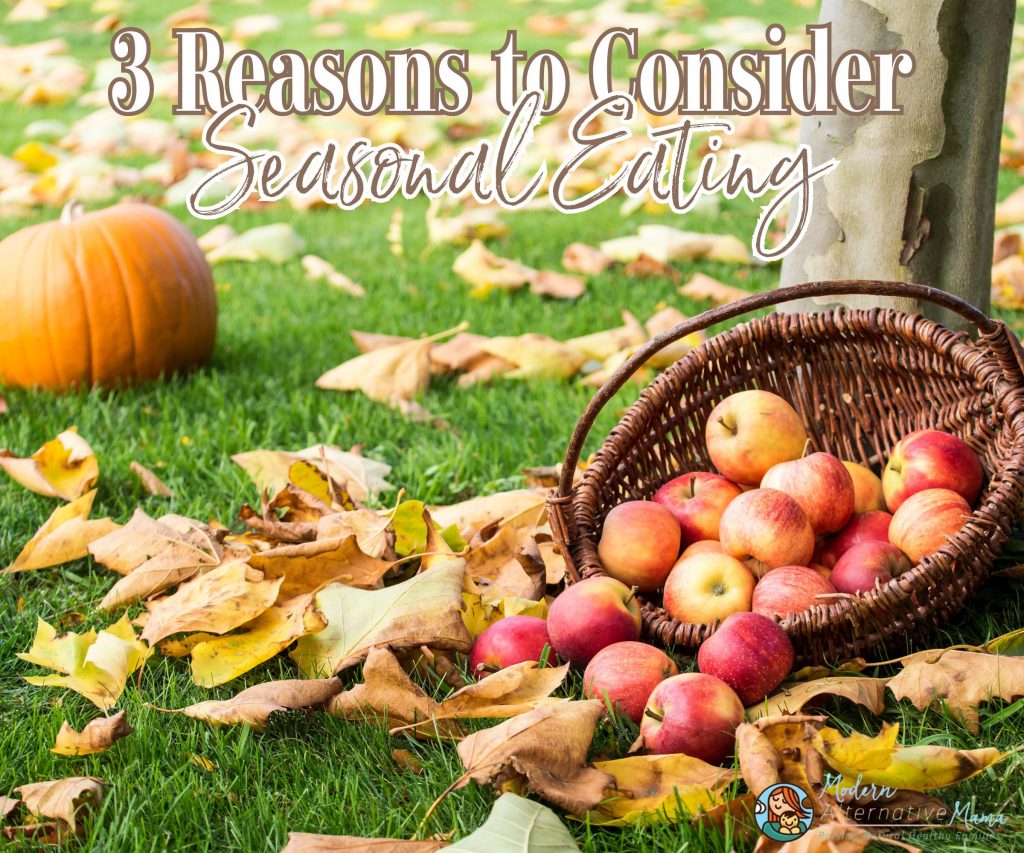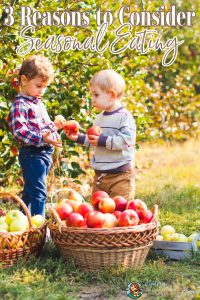As someone who is plant-based and focuses on eating a lot of fresh produce, seasonal eating is a must. Eating what is available, when it’s available, is easier and cheaper in the long run. Not to mention, eating what’s available in nature, when it’s available, is the natural thing to do.
Think about it. In the springtime, dandelions start blooming. Dandelions become naturally available after a winter of heavy eating intended to gain weight and keep us warm in colder months. Even nature recognizes dandelions are important during spring when our livers need the most detoxing.
Another great example of nature knows best is elderberries. Elderberries mature between August and September, shortly before “flu season.” It isn’t a coincidence that nature provides us with the nutrients (and antidotes) we need to get through the colder months without the need for synthetic “immune boosters” like the flu shot.
Seasonal eating goes beyond nature providing specific foods we need during that time of the year; it’s also about freshness. Have you ever purchased a watermelon in December? If you have, I’m sure you’ve noticed they’re never sweet. Well, there’s a reason why. The largest watermelon-producing states are Florida, Georgia, Texas, and California, and their watermelon season is between May and September. Of course, the watermelon would be more bitter; they’re not meant to be grown that time of year.
Understanding Seasonal Eating
Of course, seasonal eating will look different depending on where you live. What’s in season in a tropical climate like Florida in December is much different than what’s in season in a colder climate like New York. For example, Florida’s seasonally appropriate produce in December includes (1):
- Avocados
- Broccoli
- Brussels sprouts
- Cabbage
- Carrots
- Cauliflower
- Celery root
- Cilantro – check out our cilantro herbal profile
- Chard
- Chiles
- Coconuts
- Collard greens
- Corn
- Cucumbers
- Eggplant
- Fennel – check out our fennel herbal profile
- Grapefruit
- Green beans
- Green onions
- Kale
- Guava
- Leeks
- Lemongrass
- Lettuce
- Limes
- Mandarins
- Mushrooms (cultivated)
- Navel Oranges
- Okra
- Oregano – check out our oregano herbal profile
- Papaya
- Parsley –
- Passionfruit
- Peanuts
- Pommelos
- Radishes
- Scallions
- Strawberries
- Summer squash
- Sweet peppers
- Tangerines
- Thyme – check out our thyme herbal profile
- Tomatoes
- Zucchini
Contrarily, New York’s seasonally appropriate produce in December includes beets, cranberries, leeks, cultivated mushrooms (wild is in season between spring and fall), parsnips, pears, potatoes, and winter squash (2). As you can see, the list is much shorter and looks very different compared to the long Florida list.
3 Reasons to Consider Seasonal Eating
No matter how seasonal eating may look for you, know there are many benefits to eating seasonally, both for you and the planet we depend on for food (and medicine).
Better Nutritional Value
First and foremost, in-season foods have a better nutritional value. One study found broccoli harvested in the fall had nearly twice the amount of vitamin C compared to broccoli harvested in the spring (3). One study found that lettuce lost approximately 48% of its original vitamin C after transport, storage, and just three days of sitting on the grocery store shelf (4).
Food doesn’t stop losing nutrients just because you took the produce home. One study found that many fruits and vegetables lose phenolics, vitamin C, and antioxidants after 15 days of cold storage (5). In other words, when you take the food home and store it in the refrigerator, it loses nutritional value. No worries, though; not all storing methods cause decreased nutrition.
For instance, frozen foods typically don’t lose nutrients. Studies indicate some foods may have higher levels of nutrients after freezing (6,7,8). The same goes for canned and dried foods, which have a comparable nutrient profile to fresh foods (9,10). Of course, just because you buy frozen or dried foods doesn’t mean it was harvested while in season. I recommend purchasing (or growing) fresh, in-season foods and then freezing or drying them yourself. Earthley’s downloadable guide, Simplify Natural Living, is a great resource for learning how to preserve your own food.
Reduces Your Environmental Footprint
Nutritional value aside, seasonal eating reduces your environmental footprint. When the in-season list is shorter in December, colder regions depend on farmers in warmer climates (like Florida) to harvest their food. In other words, Florida farmers are harvesting for their community and colder regions like the northern states, ensuring a variety of fresh produce.
Most don’t think about how the produce gets to their local store. The short answer: just like when we order something online, the produce will be delivered via airplanes and trucks. Let me break this down even further.
Let’s say you live in New York, and it’s December. Obviously, there aren’t many in-season options (beets, cranberries, leeks, cultivated mushrooms, parsnips, pears, potatoes, and winter squash). Now, you can have winter squash, which you can grow independently or purchase locally. If you purchase winter squash locally, there will be a much shorter travel time to get the produce to the grocery store (say, an hour and ten gallons of gas).
Contrarily, if your mind is set on the summer squash at the grocery, chances of it being local are slim to none. Even if it was local, it’s not in season and will likely taste off. With that said, a decent option would be the summer squash imported from Florida, right? WRONG!
Summer squash traveled 1,000 miles to your local New York grocery store. By truck, that could have taken 1-3 days to arrive. Then you don’t know how long it’s been sitting on the shelf. Chances are the nutritional value has decreased by 50%, and it’s taken 100 gallons of gas (if not more) to get to your local store. That’s an astronomical environmental footprint.
Less Damage to Your Wallet
Going off of the environmental footprint, even if the produce isn’t delivered by truck, consider the pollution and chemtrails created by using an airplane. Now, think about the avocados imported from Peru or the Dominican Republic. We are so worried about pesticides and Apeel on produce that we fail to realize the harm of constantly eating imported foods and the pollution it creates, hindering our already limited organic choices.
Add in the pay needed for the extra work by farmers, truck drivers, pilots, etc.; this is why the cost of imported, in-season produce is through the roof. Not to mention, by eating local, you’re supporting your local farmers, community, and economy. You’re giving back to your community and ensuring your community is successful. In other words, seasonal eating is cheaper in the long run, especially considering increasing inflation rates.
Tips for eating seasonally:
- Shop at your local farmers market.
- If you don’t have a farmer’s market, check to see if your local grocery store has a section for “local farms.”
- Consider turning your yard into a garden (even a small indoor garden is better than nothing).
- Learn how to preserve in-season food to enjoy when they’re out of season (e.g., drying herbs or canning foods).
Remember, seasonal eating isn’t all or nothing. The point of seasonal eating is to ensure you’re getting the best nutrients and food tastes good. Supporting local farmers and reducing your environmental footprint is a huge bonus. Of course, with inflation through the roof, saving money is another great reason to consider seasonal eating.







